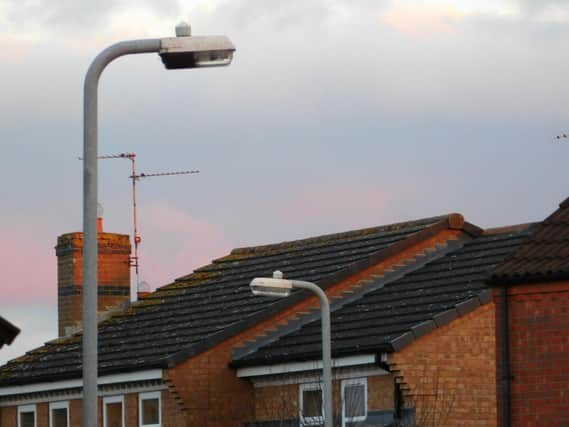Lincolnshire County Council proposing to do without new street lighting


The authority’s Highways and Transport Committee on Monday examined changes to its street lighting policy which will say new development roads “will not be lit for highway purposes”.
Developers will be given an option to pay the council a sum to adopt “non-highway lighting” for footway or placemaking initiatives such as aesthetic or safety purposes.
Advertisement
Advertisement
The report said there was an “increasing momentum amongst developers for new developments to be lit not for highway purposes… but for place-making or foot-way-only purposes, where the lighting does not have to meet highway standards”.
Council officer John Monk told councillors developers were moving towards “creating the right atmosphere” and “more of a feeling of place”.
Since 2016, LCC has been attempting to reduce the number of street-lights switched on overnight, with many going to part-night systems or being replaced by LED lighting, to save money.
Council bosses estimate they have so far made a saving of £2.58million a year with energy consumption reducing from 22.9million KwH in 2015/16 to 8.6million KwH in 2021/22.
Advertisement
Advertisement
LCC is facing an increase in energy costs of 67 per cent in October.
Officers said the latest change maintained the council’s priorities to minimise its contribution to carbon emissions as well as placing the responsibility for non-highway public lighting on other authorities.
“Although it would continue to be a step change from the current expectation that all new developments are lit to highway standards, by the offer to adopt non-highway lighting for a commuted sum, it is likely that some lighting will be provided on most developments, and in a manner which fits with the current place-making agenda,” said their report.
Public speaker David Matthews, a design engineer and consultant of nearly 40 years, told councillors, it was “the worst design I’ve ever seen”.
Advertisement
Advertisement
“The first requirement of any design is that it’s safe, in the case of this one the safest design is the one it replaces – it’s obviously not,” he told members.
He warned of previous Health and Safety Executive Investigations leading to fines and even prison sentences as a result of someone getting hurt or “even worse, killed.”
He urged the council to switch lights back on, replaced with LEDs to save money on electricity and maintenance.
Mr Monk, however, said: “If HSE had their concerns they would be writing to us.” But added it was “simply a case of affordability”.
Advertisement
Advertisement
Councillors had some concerns. Coun Robert Gibson said a lot of residents in his area were “going to and from work at all hours of the days”.
He added: “A lot of people are walking down the streets at night clutching alarms and keys and I’m not comfortable with this policy that we’re going to have no lights.”
Mr Monk told councillors Lincolnshire was “one of the safest areas in the country” adding that previous data had shown “no demonstrable link” to show an impact on crime.
Conservative Councillor Mike Brookes told councillors he felt the authority had done everything by the book.
“We’ve been through all the right processes and everything and considered things really thoroughly,” he said.
The policy will now go before the executive committee for a final decision.